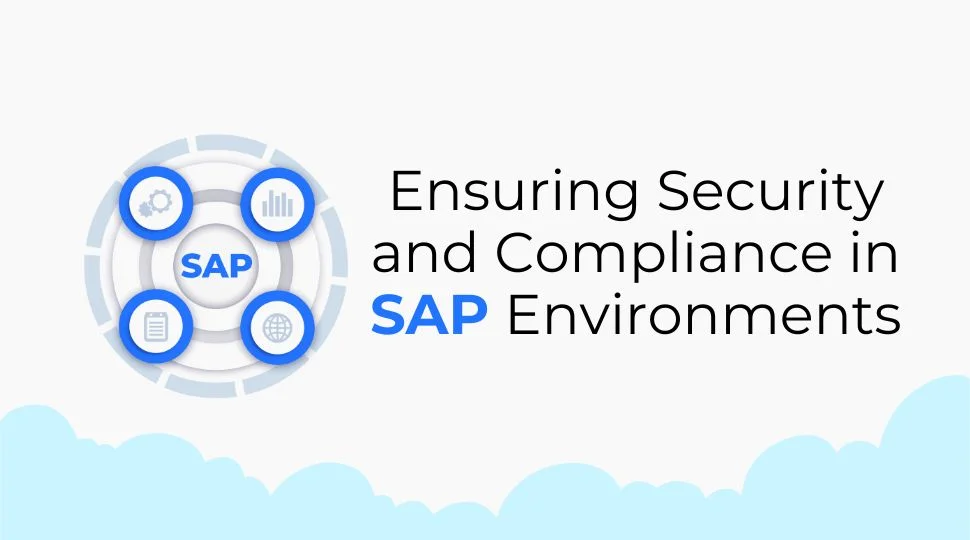Ensuring Security and Compliance in SAP Environments


For organizations, SAP's operational backbone manages all things from financial data to customers' records. While its functionality is unparalleled, exactly the same functionality presents the most singular challenges to its security and compliance. It puts them at risk of severe damage if these issues are not dealt with: data breaches, fines, and reputational damage.
We shall get into this blog to discuss how to protect SAP environments using strong security practices with high compliance standards.
SAP systems contain sensitive information and process business-critical information. Thus, it is a business need rather than a technical necessity to secure such environments.
SAP systems contain details of financial records, HR data, customer information, and so forth, which are the prime targets for such cyberattacks.
SAP systems contain details of financial records, HR data, customer information, and so forth, which are the prime targets for such cyberattacks.: GDPR, HIPAA, SOX are a few of the applications that govern strict compliance by the organisations using SAP.
The SAP-compliant environment develops minimum disruption for the well-run operation.
SAP-based cyber attacks may lead to significant financial and reputational loss.
Poor access controls enable an unauthorized user to make inappropriate uses or misuse the facility, which may cause data theft or manipulation.
Outdated software and unpatched systems expose the SAP environment to vulnerability to security threats including ransomware.
Review and delete inactive User Permissions
Role-Based Access Control must be implemented so that users are granted only the access they require
Schedule and roll out routine System Patches
SAP security patches will be implemented immediately on its release
Automated tools must be used to identify and rectify vulnerability issues
Protect sensitive data with both rest and transit data encryption
Use Secure Socket Layer protocols to encrypt communication
MFA - Multi-Factor Authentication must be implemented
More verifications of user's access to be layered up, among other things, biometric scans, and finally OTP end.
Align SAP processes to regulatory frameworks such as GDPR, HIPAA or SOX. Leverage SAP's compliance tools for the fulfillment of legal requirements.
Sustain compliance audits and hence spot identification of compliance gaps. Provide a real-time monitoring tools to track system activity for anomaly detection.
SAP's GRC solutions support the compliance risk management of an organization in effective ways. They facilitate features such as:
Access control preventing unauthorized activities.
Risk Management The process of managing and minimizing threats.
Audit Management For smooth audit activity.
SAP RAP focuses on various industries to address real-world business issues. Some applications include the following:
A global retailer used RBAC to enhance SAP security, resulting in a 70% reduction in unauthorized access events.
A health care provider complied with HIPAA by applying SAP GRC tools for data access monitoring, thus achieving full compliance within six months.
Modern organizations can no longer afford to bargain on securing their SAP infrastructure against security and regulatory compliance. This will not only assure protection of your data, ensure business continuity, and avoid penalties but also proactively tackle the risks with a healthy dose of regulatory standard adherence.
As such, SAP's strong tooling and feature-based enhancements of security and compliance cannot be over-emphasized, but they really depend on how an organization implements and maintains it. With the strategies outlined in this blog, you can ensure that your SAP environment remains secure, compliant, and ready for business growth.